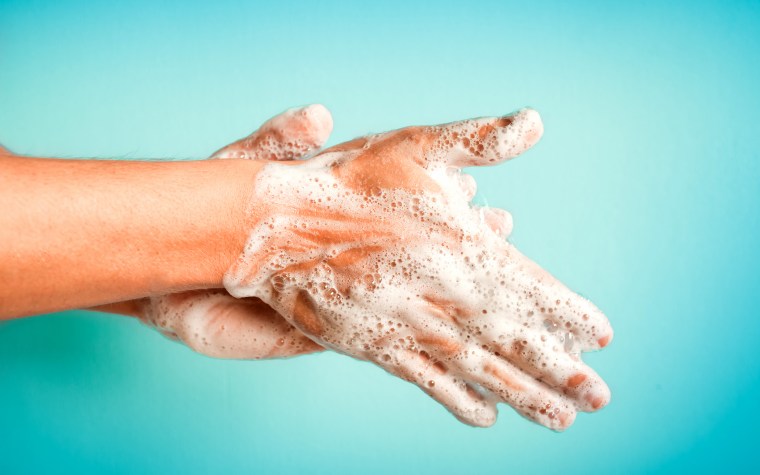Covid 19 Updates

Adults of any age who have type 1 or type 2 diabetes are more likely to get severely ill as a result of COVID-19. Severely ill is defined as requiring hospitalization, admission to the ICU, intubation or mechanical ventilation, or death. Based on what we know at this time, having gestational diabetes (diabetes while pregnant) might also make you more likely to get severely ill.
It’s important that everyone get a COVID-19 vaccination as soon as it’s available to them, but it’s especially important for people with diabetes to get the vaccination. COVID-19 vaccination will help keep you from getting seriously ill if you get COVID-19. CDC makes recommendations for who should get the vaccine first, then each state makes its own plan. To learn more about vaccine availability in your area, click here.
Have questions about COVID-19 vaccines? Here’s where to start.
What can teachers do to protect themselves and their students during the coronavirus disease pandemic?
When workplaces open and life looks and feels more normal, we may experience a new kind of post-COVID-19 stress. It may be difficult to let go of the close connections with family we experienced during lockdown. Perhaps we feel that our priorities have been reset; things that used to be critical no longer seem important. We may worry that it will be tough to wear masks at work or to feel safe in your work environment with new rules.
Re-entry into the workplace may be challenging. As much as things will be familiar, there will also be some obvious changes that will call upon us to adapt and stay patient with ourselves and others.
When returning to work, show compassion for yourself. Begin with our "Handling the Stress of Returning to "Normal" resource at myStrength.com
Easy, fast doctor visits. All from the comfort of your own computer or mobile device. Talk to a doctor today, tonight, anytime — 365 days a year (charges apply).
Who Can Use LiveHealth Online?
If you are a member of the CSD Insurance Trust or you get your health benefits through your school district, you are eligible.
How?
Enroll at: livehealthonline.com or on the free mobile app.
A free online and mobile program that supports emotional health and well-being. The program’s tools and resources are available to help you and your eligible dependents manage: Addiction, Anxiety, Chronic pain, Depression, Problems with sleep, and Stress
Who Can Use myStrength?
If you are a member of the CSD Insurance Trust or you get your health benefits through your school district, you are eligible.
How?
Go to: anthem.com/mystrengthMO or download the app on your apple or android device.
What is Engage?
Engage is Anthem’s innovative member engagement platform, with access to benefits anytime, anywhere, and much more! available online and as a mobile app.,
Who Can Use Engage?
If you are a member of the CSD Insurance Trust or you get your health benefits through your school district, you are eligible.
How?
Available online and as a mobile app. https://app.engage-wellbeing.com/
- What special precautions may be necessary
- What to know about prenatal visits
- Guidance about delivery
- Information about post-partum issues
True or false?
If you are outdoors, you do not need to practice social distancing.
False. While it is less likely for you to contract COVID-19 outdoors, it is still important to stay at least six feet away from other people. Some people with COVID-19 have no symptoms and can spread the disease without knowing it.
Cloth face coverings are a replacement for social distancing.
False. Even if you and everyone you are socializing with are wearing cloth face coverings, you still need to practice safe social distancing. This applies to situations where you are outside your home or around anyone outside your immediate household.
It is a good idea to check a restaurant’s website or call ahead to find out what preventive steps they are taking before you go.
True. According to the CDC, you should find out if all restaurant staff are wearing cloth face coverings. You may also ask if outdoor seating is available, what precautions the restaurant is taking and if it is set up for safe social distancing.
You should arrange tables six feet apart at any gathering.
True. There are other ways you can help manage health risks, such as reminding guests to stay home if they are sick, only hosting a party outside with a small number of attendees, cleaning hands often, wearing cloth face coverings, and limiting the number of people handling and serving food.
If hosting a cookout or outdoor party, keep an up-to-date guest list.
True. The CDC recommends keeping track of party guests in case you or someone else has COVID-19. This practice can help with contact tracing to warn others of exposure to contain further transmission.
If you work out at a public gym, you should take extra precautions.
True. Especially when using shared equipment, you should wipe down machines and equipment with disinfecting wipes. Use hand sanitizer that has at least 60% alcohol before using machines. Wear a face covering when using an indoor track or in a close space.
Swimming is off limits during the pandemic.
False. There is currently no evidence that COVID-19 can spread to people through water in pools, hot tubs and water playgrounds. However, it is still important to practice social distancing with people outside of your home when visiting public recreational areas, including pools, beaches and lakes.
Things change rapidly, so check credible resources like the CDC for the most up-to-date information. Safety precautions can help you relax and enjoy your summer fun!
Have questions about COVID-19 vaccines?
Here’s where to start: https://getvaccineanswers.org/#questions
With the highly contagious Delta variant of COVID-19 leading to more hospitalizations in the United States, now is the time to make an informed decision.
COVID-19 vaccines are free and widely available in the U.S. Everyone 12 years of age and older is eligible to get a COVID-19 vaccination.
FDA updates on hand sanitizers consumers should not use
Cloth face masks and face coverings can help keep people infected with COVID-19 from spreading the virus to others. COVID-19 is mainly known to be transmitted between people through respiratory droplets when an infected person coughs, sneezes or talks. Studies show that these droplets can travel about six feet. However, when an infected person wears a mask that covers their nose and mouth, the mask can help keep these droplets from spreading to people who are nearby.
How are cloth face coverings and face masks effective in protecting against the COVID-19 disease?
It's possible to have the virus and be contagious even if you don't feel sick. Not everyone infected with COVID-19 has symptoms (called "asymptomatic"), and people with COVID-19 can also spread the virus before symptoms appear (called "pre-symptomatic.") Wearing a face mask or cloth face covering can help keep you from transmitting the virus to others when you don't know you're infected.
|
COVID-19’s Effect On Obesity, Nutrition, and Physical Activity |
|---|
|
Three papers published in the third quarter of 2021 explored the effects of COVID-19 on different aspects of obesity, nutrition, and physical activity.
Regarding obesity, scientists found that among 432,302 persons aged 2–19 years, the rate of body mass index (BMI) increase approximately doubled during the pandemic compared to a prepandemic period. Persons with prepandemic overweight or obesity and younger school-aged children experienced the largest BMI increases.
Another paper reported results of a survey of 4,053 US adults during the pandemic in June 2020. Of the respondents, 58.3% reported worry about food availability, and 57.5% reported worry about food safety.
In a different survey of 3,829 US adults in June of 2020, 30% of respondents reported less physical activity and 50% reported no change or no activity during the pandemic. Concern about exposure to the virus (39%) was the most common reason adults were less active.
Longitudinal trends in body mass index before and during the COVID-19 pandemic among persons aged 2-19 years - United States, 2018-2020 Lange SJ, Kompaniyets L, Freedman DS, Kraus EM, Porter R, Blanck HM, Goodman AB. MMWR Morb Mortal Wkly Rep. 2021;70(37):1278-1283. Published 2021 Sep 17.
Characteristics associated with self-reported worry among adults about food availability and food safety during the COVID-19 pandemic-United States, June 2020 survey data Dumas BL, Lee SH, Harris DM, Yaroch AL, Pomeroy MA, Blanck HM. Am J Health Promot. 2021;8901171211039499.
Cross-sectional study of changes in physical activity behavior during the COVID-19 pandemic among US adults Watson KB, Whitfield GP, Huntzicker G, Omura JD, Ussery E, Chen TJ, Fanfair RN. Int J Behav Nutr Phys Act. 2021;18(1):91. Published 2021 Jul 7.
|
|
|---|
|
|
|---|

 and sanitizer products. FDA test results show certain hand sanitizers have concerningly low levels of ethyl alcohol or isopropyl alcohol, which are active ingredients in hand sanitizer products. The agency urges consumers not to use these subpotent products and has expanded its
and sanitizer products. FDA test results show certain hand sanitizers have concerningly low levels of ethyl alcohol or isopropyl alcohol, which are active ingredients in hand sanitizer products. The agency urges consumers not to use these subpotent products and has expanded its